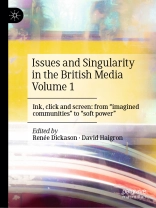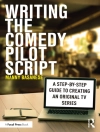This book offers a historical, cultural, political and socio-economic analysis of the British media. It examines how facts and events are reported and interpreted, but also how ideas and opinions circulate and are recycled, with attention being paid to British traits and tropes in these domains. This in-depth study of “issues” and “singularity” aims at understanding how the British media have helped shape the country’s culture and representations, thereby providing its people with a sense of togetherness.
Volume 1 focuses on the press, the internet and cinema as mass media, from the prolific and innovative Victorian era – the matrix of the modern world – to the turn of the 21st century with the challenge of digitalisation. Newspapers, magazines, films and music are studied as vehicles for fostering shared collective identities (“imagined communities”) and for projecting a certain image of Britain at home and abroad (“soft power”).
Table des matières
Chapter 1: Introduction.- Chapter 2: Converting Blocks into Wisdom?: The 19th-Century Pictorial Press.- Chapter 3: The 20th-Century British Written Press: Landmarks, (R)evolutions, and Influences.- Chapter 4: The Rise (and Fall?) of the British Music Press in the Age of Streaming and Social Media Platforms.
A propos de l’auteur
Renée Dickason is Professor of British and Commonwealth studies at the University of Rennes, France. She has been a keen observer of British media for some thirty years. She is the author and (co-)editor of numerous publications on British social and cultural history, on war memories and on war representations in the media
David Haigron is a Senior Lecturer in British Studies at the University of Rennes, France. He is the author and (co-)editor of numerous publications on political communication, popular culture and social representations in the media.












